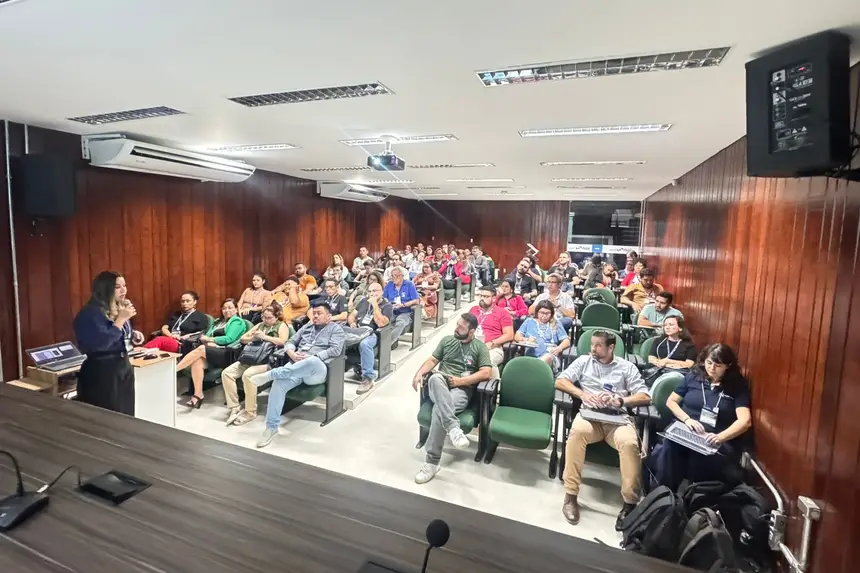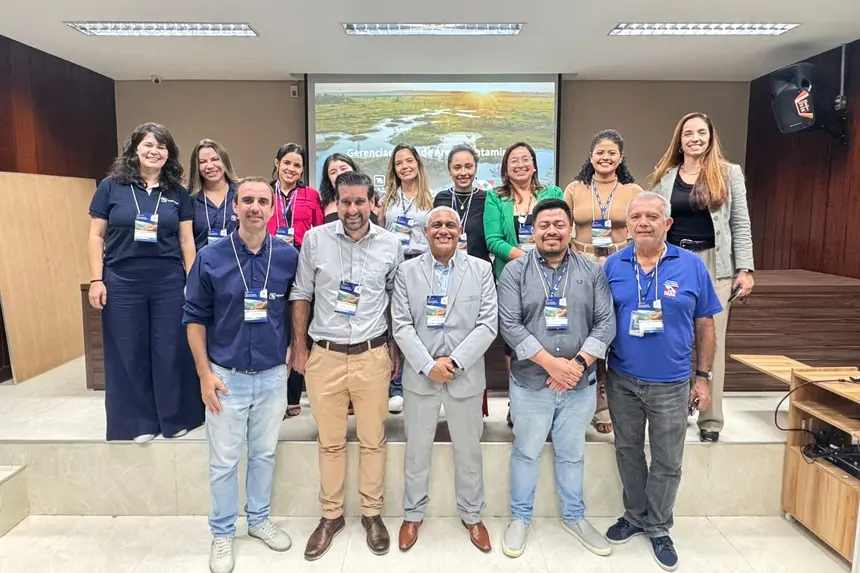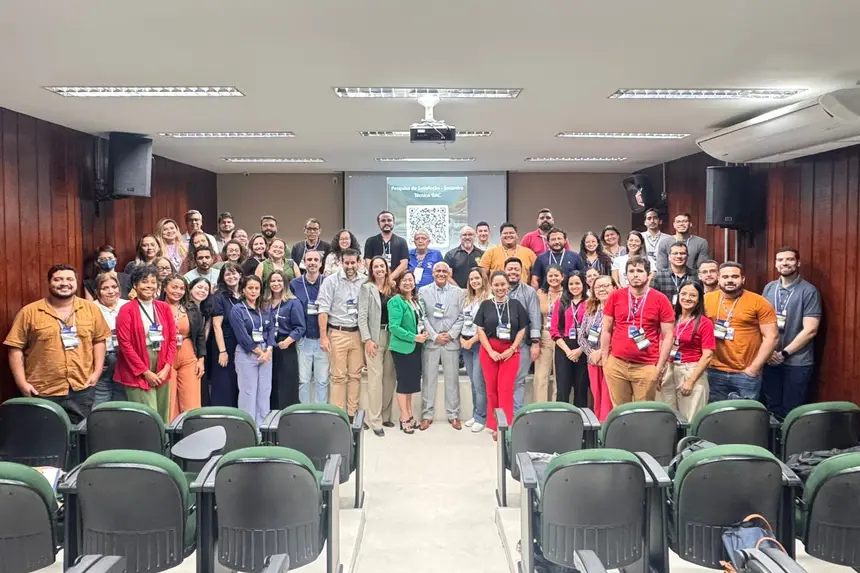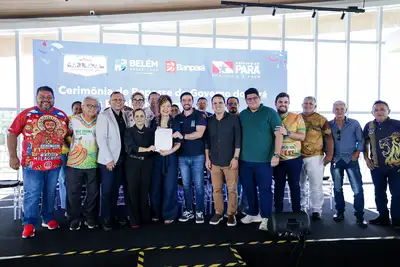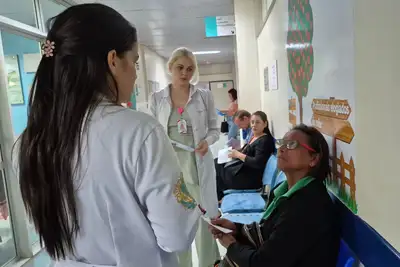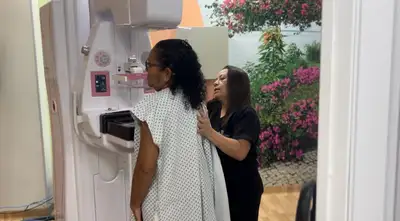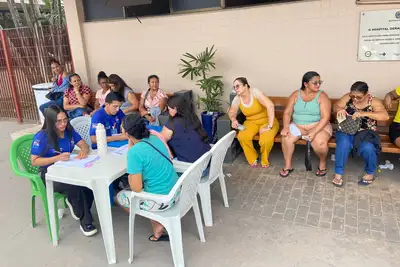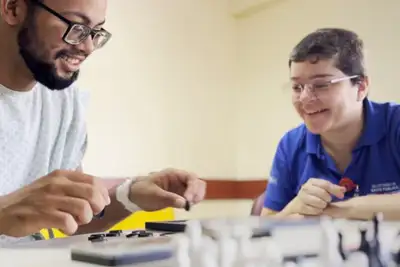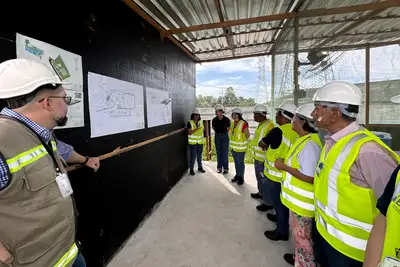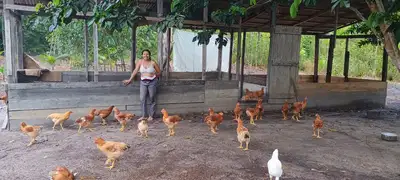Semas promotes workshop focused on impact mitigation and monitoring of areas
The event aimed to promote the exchange of knowledge and experiences on the maintenance of areas affected by contamination, as well as to strengthen the training of the institution's staff.
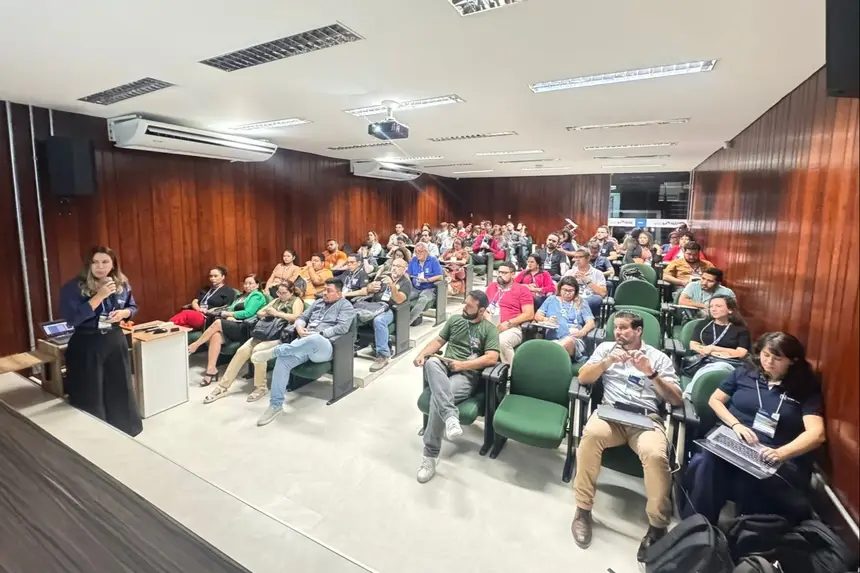
The State Secretariat for the Environment, Climate and Sustainability (Semas) held, this Tuesday (2), the Technical Meeting on the Management of Contaminated Areas, in the auditorium of Semas headquarters, in Belém. The event, resulting from the collaboration between Semas, through the Environmental Licensing Directorate (DLA), and the engineering consultancy, Tetra Tech, aimed to promote the exchange of knowledge and experiences on the maintenance of areas affected by contamination, as well as to strengthen the training of the institution's staff.
Marcelo Moreno, director of Environmental Licensing at Semas, explains that one of the greatest concerns of environmental licensing is with the mitigation of impacts and monitoring of potentially contaminated areas.
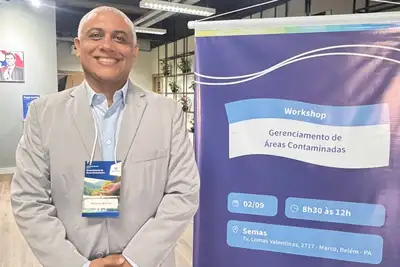
“Today, through this workshop, we are training our staff, bringing an update on the products being used in the management of contaminated areas. Tetra Tech provided this opportunity to showcase technologies that are being used and developed in other locations, so that our staff can better understand what is being done in the area of innovation in monitoring, recovery, and remediation of contaminated areas,” he said.
“This meeting adds more security to technical decisions, enabling alternatives that can reduce environmental risks for enterprises, in addition to contributing to make environmental licensing increasingly efficient, transparent, and aligned with the best national and international practices,” highlighted Rosa Mendes, from the Coordination of Industry, Commerce, Services, and Waste (CIND), of Semas.
Semas operates in the management of contaminated areas through environmental licensing, a management mechanism in which the public administration exercises control over human actions that interfere with the environment, reconciling economic development with ecological preservation. The process is divided into three subcategories: preliminary license, installation license, and operation license, which aim to detect, mitigate, monitor, or eliminate environmental damage.
“I want to emphasize the importance of this event regarding the training of the staff involved in environmental licensing, especially on this topic, which is very conducive to the work developed by the technicians and the importance of preserving the environment, especially water resources, in which our State of Pará is very rich,” emphasized Patrícia Cabral, environmental analyst at Semas.
“The meeting is important for us to understand all the ends and stages of managing contaminated areas, to observe the potentially polluting activities that we analyze in environmental licensing, and thus ensure the quality of resource use, both water and soil, the use of natural resources and their preservation, so that everyone can use them in a dignified and quality manner,” concluded Giovanni Rezende, also an environmental analyst at Semas.
Text: Vinícius Silva/ Ascom Semas


